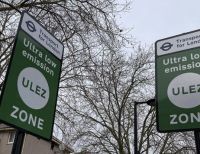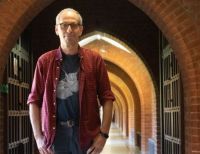A national survey is launching today as part of a wider research project investigating the “evolution of Black British identities”.
The team behind it say the research will give Black people in the UK an opportunity to “define themselves in an autonomous way” for the very first time.
The Black British Voices Project (BBVP), a partnership between the University of Cambridge’s Sociology Department, the black-led consultancy I-Cubed Ltd, and Britain’s only national Black newspaper The Voice. Their aim is to provide an updated portrait of Black Britishness – and British Blackness – for the 21st century.
The research is led by Cambridge sociologist and author Dr Kenny Monrose, and is backed by entrepreneur Dr Maggie Semple OBE, founder of I-Cubed and lead ambassador for the BBVP.
Paulette Simpson CBE, Director of The Voice newspaper, said: “We are absolutely delighted to be working with Cambridge University and I-Cubed on this project. It goes to the very core of what we’ve been doing at the Voice over the last 39 years.”
“Today, Black Britons are still largely misunderstood and misrepresented in many facets of life. We must manage and communicate our own narrative on how it feels to be Black and British”, Simpson added.
The survey will run until July, covering issues from business and health to media, youth and sexuality. It builds on focus group sessions Monrose conducted at the end of last year, as the pandemic surged into its second wave.
Black people in the UK were hit disproportionately hard by COVID-19, the discussion of which saw increased use of catchall term BAME: an acronym for Black, Asian and Minority Ethnic.
This came up in early focus groups, with one participant saying: “Terms like BAME are too shorthand, too easy, and makes us even more invisible.” For Monrose, it’s one of the reasons why research like BBVP is long overdue.
“BAME is another in a parade of imposed labels, from Afro-Caribbean or coded terms such as ‘urban’ or indeed Black British itself. Black people are not a standardised or uniform group. We felt it was past time to actually go and ask Black people themselves,” said Monrose.
“Do you see yourself as Black British? If so, are you proud to be Black British? Can Black people ever feel or be seen as English? We want to hear from normal people on streets up and down the country to uncover the reality of being Black in 21st century Britain,” he said.
















